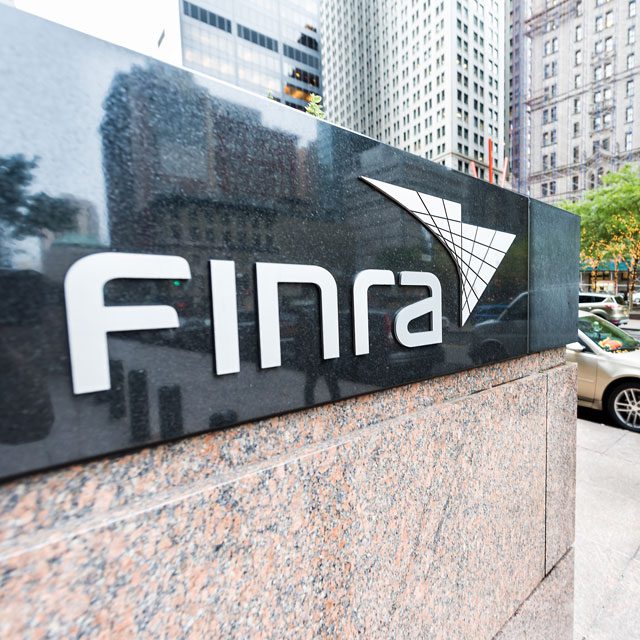Former LPL, Raymond James Reps Slammed by FINRA for Falsifying Documents

Alex Marinello, counsel for the FINRA Department of Enforcement, signed the letter on Thursday.
On Oct. 6, 2022, Raymond James filed a Form U5 reporting that Breslin had been discharged for “initiating unfunded ACH transfers to [his] personal account” and “initial lack of candor regarding same.”
In October 2022, Breslin became a registered rep for B. Riley Wealth Management. On March 2, 2023, B. Riley filed a Form U5 reporting that Breslin had been discharged for “fail[ing] to cooperate with FINRA inquiry and present[ing] falsified documents in response.”
“From December 2022 to June 2023, Breslin provided falsified bank account statements and checks to FINRA in response to a request for documents made pursuant to FINRA Rule 8210,” the AWC letter said.
Breslin also made false statements to FINRA in response to a request for information and made false statements to the regulator in testimony it requested, according to FINRA.
As a result of his conduct, Breslin violated FINRA Rules 8210 and 2010.
In December 2022, FINRA sent Breslin a letter, requesting information concerning the allegations made by Raymond James in October. In his response, Breslin stated he had traveled with his brother and a friend and each of those individuals wrote him a check for $5,000 to reimburse him for expenses on the trip.
Breslin claimed he deposited both checks into his bank account but both checks bounced when he deposited them. “Breslin’s statements to FINRA were false because he did not receive or deposit a $5,000 check from his brother or friend during the relevant period of the request,” according to FINRA.
In January 2023, FINRA sent Breslin another letter, requesting he provide copies of the checks he referenced in his earlier response and identify the corresponding check deposits on his bank account statements.
In response, Breslin provided three falsified checks: a $5,000 check from his brother; a $5,000 check from his friend, dated July 14, 2022, and another $5,000 check from his friend, dated July 28, 2022, which purportedly replaced the prior $5,000 from his friend that bounced,” the regulator alleged.
“On the check from Breslin’s brother, Breslin altered the date and amount of the check and removed any identifiable information related to the check’s deposit,” FINRA alleged. “For the checks from Breslin’s friend, Breslin altered the amount and date of the check dated July 14, 2022, and altered the amount, date, and deposit number of the check dated July 28, 2022. Breslin also provided a falsified copy of his bank account statement, listing deposits of the falsified checks. Specifically, Breslin inserted the three $5,000 deposits into the account statements, but the balance in Breslin’s account did not change.”
On the morning of his testimony, Breslin provided FINRA another falsified version of his bank account statements, the regulator alleged. “This time, Breslin altered his account statements to inflate the running balances listed on the statements to falsely reflect deposits of the $5,000 checks he purportedly received from his brother and friend,” according to FINRA.
Breslin also provided false testimony by claiming he received and deposited checks from his brother and friend and that he submitted genuine bank account statements and checks to FINRA, according to the regulator.
Photo: Shutterstock


